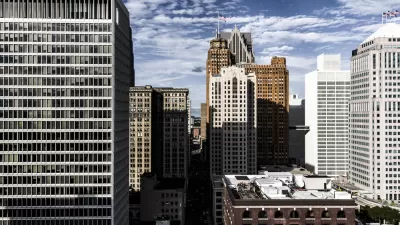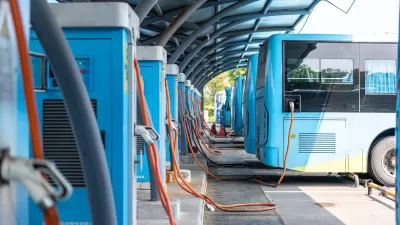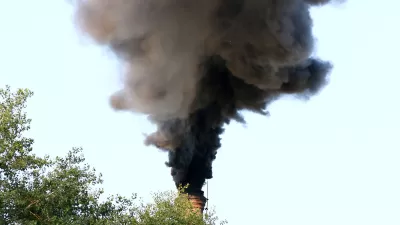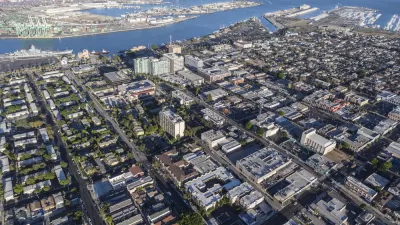As climate change intensifies, Detroit could see more devastating floods and deadlier heat waves.

Although it isn't a hotspot for cataclysmic natural disasters like hurricanes or wildfires, the Midwest isn't immune from the damaging effects of climate change, writes Aaron Mondry, and Detroit has unique challenges complicated by "the city’s high levels of racialized poverty." When the Detroit River flooded the city's east side in July 2020, residents saw firsthand the devastating potential of extreme weather events.
"An increase in the number and intensity of severe storms may further expose Detroit’s existing vulnerabilities in stormwater management and water quality," a 2014 report from the Great Lakes Integrated Sciences and Assessments warned. One issue is the city's combined sewer system. When the system becomes overwhelmed with sewage and rainwater, "the excess water gets released into the Detroit and Rouge rivers instead of the water treatment plant, polluting waterways and increasing the risk of waterborne disease," writes Mondry. Detroit is addressing this problem as part of a $500 million initiative to upgrade its sewer system, mitigate the effects of higher precipitation, and improve stormwater retention.
"Climate change isn’t just about the health of buildings and infrastructure," Mondry points out. Detroit will need more greenery and open spaces to combat the heat island effect and prevent deaths from causes like heat stroke, and residents will be forced to spend more on cooling and electricity or retrofitting their homes, compounding the disproportionate impacts on low-income communities. "Historically, low-income residents have lived closest to the biggest contributors to climate change and paid the costs of their legacy pollution," according to Mondry.
The city has released a Sustainability Action Agenda to address the immediate needs of residents and "create a more sustainable city where all Detroiters thrive and prosper in an equitable, green city; have access to affordable, quality homes; live in clean, connected neighborhoods; and work together to steward resources." Justin Onwenu, a community organizer for the Sierra Club, is quoted in the article advocating for equitable access to basic needs as an important aspect of resilience. Preparing for climate change in Detroit might be "less about building solar farms or electric-vehicle stations," Onwenu told Planet Detroit. "Resiliency should be thought of as access to good food, good jobs, and good health."
FULL STORY: Detroit’s battle with climate change: Flooding, asthma, and infrastructure

Planetizen Federal Action Tracker
A weekly monitor of how Trump’s orders and actions are impacting planners and planning in America.

Map: Where Senate Republicans Want to Sell Your Public Lands
For public land advocates, the Senate Republicans’ proposal to sell millions of acres of public land in the West is “the biggest fight of their careers.”

Restaurant Patios Were a Pandemic Win — Why Were They so Hard to Keep?
Social distancing requirements and changes in travel patterns prompted cities to pilot new uses for street and sidewalk space. Then it got complicated.

Platform Pilsner: Vancouver Transit Agency Releases... a Beer?
TransLink will receive a portion of every sale of the four-pack.

Toronto Weighs Cheaper Transit, Parking Hikes for Major Events
Special event rates would take effect during large festivals, sports games and concerts to ‘discourage driving, manage congestion and free up space for transit.”

Berlin to Consider Car-Free Zone Larger Than Manhattan
The area bound by the 22-mile Ringbahn would still allow 12 uses of a private automobile per year per person, and several other exemptions.
Urban Design for Planners 1: Software Tools
This six-course series explores essential urban design concepts using open source software and equips planners with the tools they need to participate fully in the urban design process.
Planning for Universal Design
Learn the tools for implementing Universal Design in planning regulations.
Heyer Gruel & Associates PA
JM Goldson LLC
Custer County Colorado
City of Camden Redevelopment Agency
City of Astoria
Transportation Research & Education Center (TREC) at Portland State University
Camden Redevelopment Agency
City of Claremont
Municipality of Princeton (NJ)





























